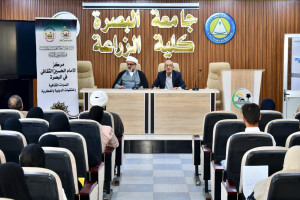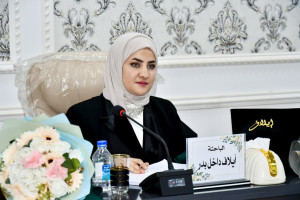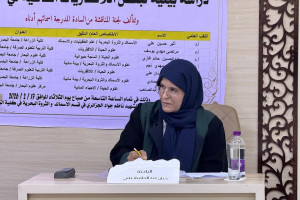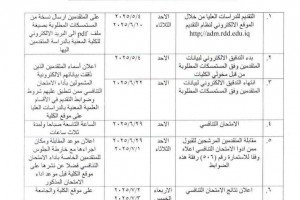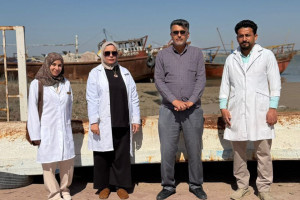
The Department of Food Sciences at the College of Agriculture at the University of Basrah organized a panel discussion delivered by a postgraduate/doctoral student (Amir Abbas Muhammad). The workshop aimed to produce a natural antioxidant from Streptococcus thermophilus to be an alternative to industrial antioxidants that cause long-term health problems for humans, in addition to the high economic cost, such as butyl hydroxyanisole (BHA), butyl hydroxytoluene (BHT) and propyl gallate (PG), which are added to prevent Or delaying the oxidation of food oils, where the study included isolating and diagnosing Streptococcus thermophilus bacteria capable of producing hyaluronic acid from cheap culture media after confirming its return through genetic tests, finding the best conditions for acid production from the selected bacterial strain, diagnosing the produced hyaluronic acid and studying its physical properties and efficacy Anti-oxidation, and the use of hyaluronic acid produced as a natural antioxidant in crude sunflower oil using different concentrations and storage conditions, and a study of the effect of adding hyaluronic acid as an antioxidant in oils used in feeding experimental animals and the detection of growth indicators and some hematological and immunological parameters and microbial characteristics of experimental animal feces. The study recommended the use of modern techniques such as genetic engineering and the transfer of the genes responsible for acid production to the bacterial strain to increase its production and the introduction of hyaluronic acid in other food products such as yoghurt, meat products or pastries in order to improve the functional properties of these products.

